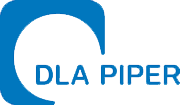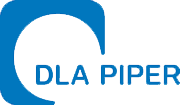Legal Alert: Six Important Standards for the Implementation of the Digital Transformation Act

August 22, 2023 | By Diego Peña, Carla Illanes and Felipe Massardo
On August 17, 2023, six technical standards corresponding to the Act of Digital Transformation of the State (LTDE), established by Supreme Decree No. 4 (2020), issued by the Ministry General Secretariat of the Presidency (MINSEGPRES), were published in the Official Gazette.
The technical standards were created by Interinstitutional and Interdisciplinary Technical Committees convened by MINSEGPRES in 2021. The process involved public consultation and joint work between different ministries, following international and national standards.
The purpose of these technical standards is to provide guidelines and provisions for the proper implementation of various mandatory aspects of the LTDE. These standards ensure the efficient operation of administrative procedures of an electronic nature.
The six technical standards associated with the LTDE are the following:
1. Technical Standard on Information Security and Cybersecurity (Supreme Decree No. 7, 2023, MINSEGPRES) Each organ of the State Administration (OAE) must develop an Information Security and Cybersecurity Policy to safeguard their administrative procedures’ computer infrastructure and data. This policy will ensure compliance with technical guidelines and standards of information security and cybersecurity, maintaining confidentiality, integrity, and availability of information.
2. Technical Standard on Notifications (Supreme Decree No. 8, 2023, MINSEGPRES)
This standard explains how the Notifications Platform will work for electronic notifications made by OAEs.
It also establishes the electronic means by which OAEs shall make notifications in their administrative proceedings, including the Single Digital Address (DDU) which can be a Single Mailbox or an email.
3. Technical Standard on Authentication (Supreme Decree No. 9, 2023, MINSEGPRES)
This standard establishes the way in which OAEs must integrate Official Authentication Mechanisms (MOAs), such as a Unique Key and Tax Key, on their electronic platforms to validate user identity for administrative procedures. New MOAs can be requested by OAEs, which must meet standards and undergo an accreditation process.
4. Technical Standard for Documents and Files (Supreme Decree No. 10, 2023, MINSEGPRES)
This guidance establishes the standards, formats, metadata, traceability records, phases, and processes that OAEs must comply with to administer and manage electronic documents and records related to an administrative procedure.
It also defines “Official Communication” as a formal electronic message ensuring the integrity and registration of the communication.
5. Technical Standard for Quality and Operation (Supreme Decree No. 11, 2023, MINSEGPRES)
This standard outlines procedures for OAEs to maintain optimal service levels, technological resilience, and operational continuity for electronic platforms related to administrative procedures.
6. Technical Standard on Interoperability (Supreme Decree No. 12, 2023, MINSEGPRES)
The purpose of this standard is to define the protocols, tools, and standards by which OAEs may exchange data, documents, and electronic files.
In short, the aforementioned technical guidance provides OAEs with clarity on the standards they must implement, so as to ensure their effective application. It also allows private actors to understand the standards under which they must interact and contract with the State, especially in the provision of document management platforms.
 |
Contact: For more information, please contact: Diego Peña Partner dpena@dlapiper.cl |
 |
Contact: For more information, please contact: Carla Illanes Counsel carla.illanes@dlapiper.cl |
* This report provides general information on certain legal or commercial issues in Chile, and is not intended to analyze in detail the matters contained herein, nor is it intended to provide specific legal advice on such matters. The reader is advised to seek legal advice before making any decision regarding the matters contained in this report. This report may not be reproduced by any means or in any part without the prior consent of DLA Piper Chile.


